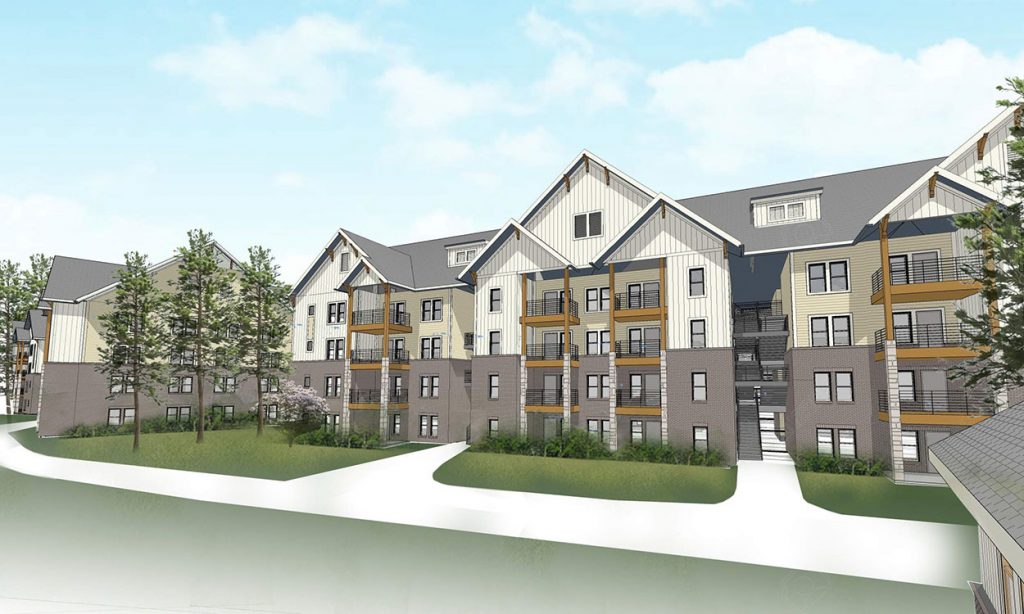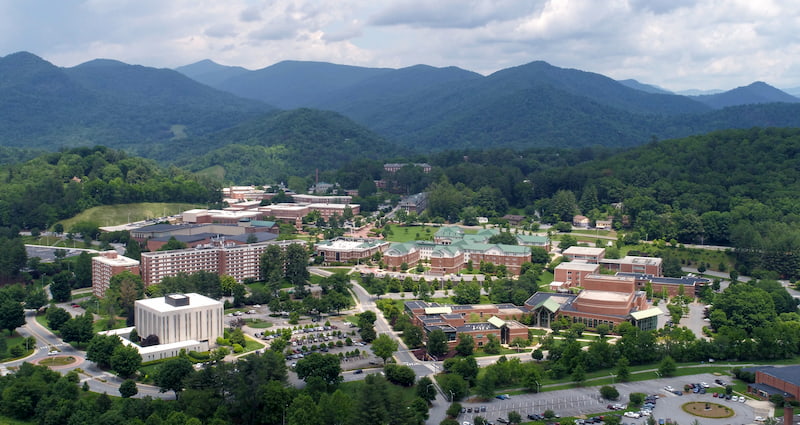Salaries, affordable housing among topics of discussion at campus forum
Seeking the additional resources necessary to provide meaningful salary increases for Western Carolina University faculty and staff and ensuring that the university is an active participant in community discussions on issues related to the growth of the institution were among the themes arising during a recent campus forum.
A capacity crowd of about 175 people packed the theater of A.K. Hinds University Center on Tuesday, Sept. 25, for the first campus forum convened by Chancellor Kelli R. Brown, who took office July 1.
The annual event, which traditionally is held during the spring semester, was postponed from its original date of April 29 to make room for Brown’s first address to campus following her election as WCU chancellor by the University of North Carolina Board of Governors on April 25.
Following the standard forum presentations on progress on the university’s strategic plan by Tim Metz, assistant vice chancellor for institutional planning and effectiveness; campus master plan by Mike Byers, vice chancellor for administration and finance; and enrollment by Sam Miller, vice chancellor for student affairs, the forum evolved into a question-and-answer session on other areas of interest to members of the campus community.
Brown took the opportunity to bring up a topic of interest to almost everyone in the theater – salaries. Faculty and staff salaries across the UNC System have become a major issue of concern in recent years, especially over the past two years as the General Assembly has given other state employees higher raises than university employees.
This year, the Legislature has approved – and N.C. Gov. Roy Cooper endorsed – a mini-budget bill that includes salary increases of 2.5 percent this year and next year for most state employees, but not for those in the UNC System.
Brown reminded forum attendees that ensuring competitive salaries and other benefits for WCU employees is a goal of the university’s strategic plan and a priority for her and for the Board of Trustees.
“I think it’s really important to understand that our Board of Trustees sees what is happening with salaries here. The system understands it. I hear the president talking about it. I hear the Board of Governors talking about it. I think it’s important to know that they are working hard on this,” she said.
WCU and UNC System officials are battling a perception that faculty and staff are highly paid employees, many with light workloads and free summers, Brown said.
“This is a marathon, not a sprint,” she said. “I look at this historically, how we’ve gotten to this point. This did not happen overnight. We have to come up with very intentional and strategic ways to think about this situation, not just about where we are today, but on an annual basis. How do we think about compression and inversion? How do we think about retention? How do we think about recruiting? These are all things to think about on an annual basis.”
Brown said she also is fighting against the misconception that it doesn’t matter if salaries are lower for WCU employees because the cost of living in the western part of the state is lower than elsewhere in North Carolina.
“Our Board of Trustees – and particularly Chair Bryant Kinney – are very much attuned to the fact of what the cost of living really is in Western North Carolina. It costs more to live here, particularly when it comes to buying houses, than it costs in other areas,” she said. “Chair Kinney is very attuned to that. He talks to the Board of Governors about this a lot.”

Student housing under construction on WCU’s West Campus (as depicted in this rendering provided by Little Diversified Architectural Consulting) could provide a model for similar housing suitable for faculty and staff.
Byers said that he and other university officials are discussing possible solutions to the lack of nonstudent housing near campus, and are studying ways to encourage private developers to help fill that void.
“One of the things that Chancellor Brown and I have been talking about is how can we start to spark something like we did with the Millennial student housing?” Byers said. “How can we leverage our power to spark development that would provide housing suitable for faculty and staff?”
WCU, through its Endowment Fund, is leasing about 11 acres of Millennial Initiative property on the West Campus to a private developer that is building a student housing complex through a public-private partnership. That project is expected to be open for student occupancy next fall.
One of the realties the university faces, however, is that developers can get a higher return on investment by building student housing as opposed to housing that would appeal to faculty and staff – and their families, Byers said.
“We know that as long as we grow, developers are going to want to provide student housing first,” he said. “With the same amount of square footage, they can rent four rooms at a rate than none of us would pay for a family for rent or to purchase.”
In response to a question regarding university engagement with local government on important community issues such as transportation and other infrastructure, Byers told the crowd that representatives of WCU are present at most meetings on those matters, and that he personally attends many of them.
A controversial project to redesign N.C. Highway 107 through the neighboring town of Sylva does not have a direct impact on WCU because the university is not adjacent to property that would be affected by the proposed work, Byers said. That project, which is designed to create a safer thoroughfare by eliminating left turns and adding a median, could result in the dislocation of up to 55 businesses.
In other items discussed, work on the university’s long-awaited front entrance sign is now scheduled to begin in the next couple of weeks. WCU officials also are working with the N.C. Department of Transportation to install directional signage to the Health and Human Sciences Building and the clinics that are located there.

